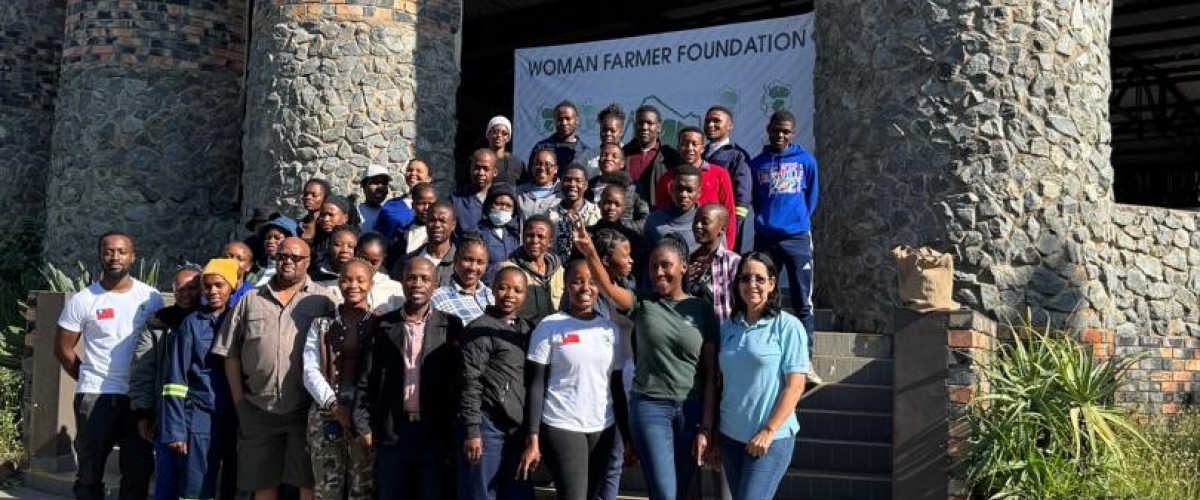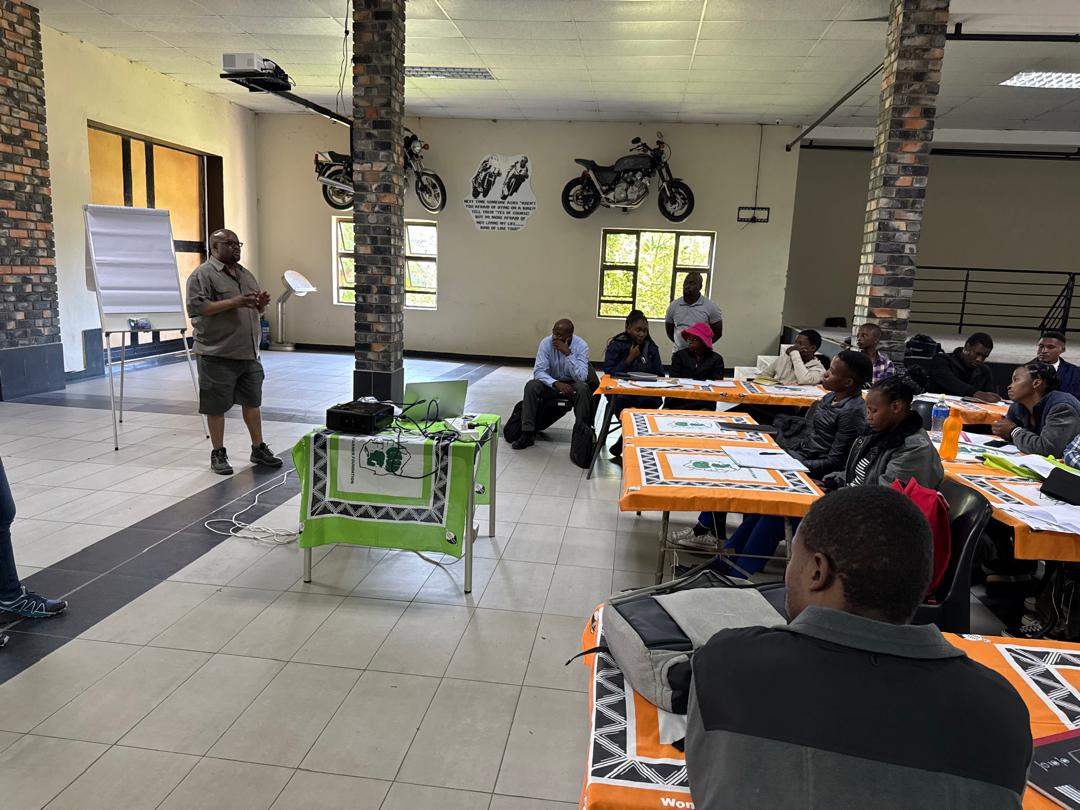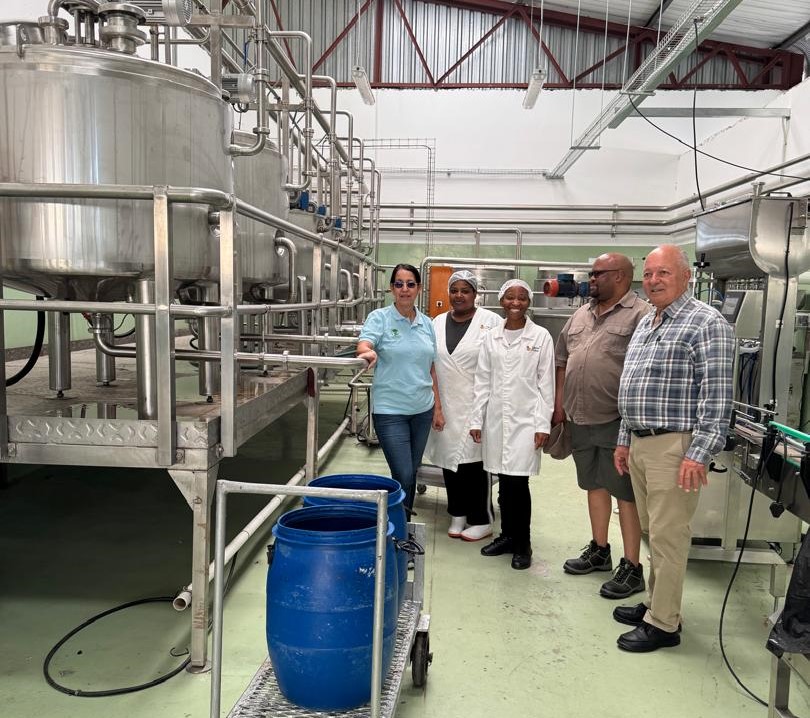
The Centre for Coordination of Agricultural Research and Development for Southern Africa (CCARDESA) reaffirmed its commitment to inclusive, sustainable agricultural transformation through its participation in the Youth Climate-Smart Agriculture Training, hosted by the Women Farmer Foundation in Eswatini. The training brought together Cohorts 1 and 2 of selected youth and aimed to build capacity in sustainable farming and agribusiness among young people, particularly women, to drive climate-smart agriculture across the region.
CCARDESA Executive Director, Prof. Cliff Dlamini, participated in the opening session and engaged with participants during a learning visit to Grand Food Processing, a social enterprise housed at the Foundation that exemplified local value addition, entrepreneurship, and women’s economic empowerment.

“Investing in youth and women is not just a moral imperative—it’s an economic one,” said Prof. Dlamini. “The skills imparted here are critical for driving the transformation of agriculture in Southern Africa. This training aligned perfectly with CCARDESA’s fourth thematic area on Gender and Social Inclusion, and we are proud to be part of this catalytic movement.”
The training offered a rich and practical curriculum designed to equip participants with real-world skills. Core modules included tunnel crop production using climate-smart techniques that promoted year-round, controlled-environment farming. Participants were also trained in agri-processing and packaging, enabling them to add value to raw produce and create market-ready products. The sessions on entrepreneurship and agribusiness planning provided a foundation for starting and scaling agricultural ventures, while the focus on market-led production taught trainees how to align their operations with demand and consumer preferences. The training also integrated climate adaptation strategies and resource-efficient practices, empowering youth to build sustainable, resilient farming systems.
Participants were introduced to smart technologies such as solar-powered irrigation systems, digital crop monitoring tools, and environmentally friendly farming inputs. Through these tools, the youth learned to optimize yields while conserving energy, water, and soil health.
“This training was about building a new generation of agri-preneurs who are resilient, market-savvy, and environmentally responsible,” explained Ms. Nkosinathi Dlamini, Project Coordinator at the Women Farmer Foundation. “We aimed to equip them not only to grow food, but also to grow businesses and impact their communities.”

The program combined theory, field demonstrations, and mentorship to ensure that participants left not just with knowledge, but with the confidence and practical skills to apply what they had learned. The inclusion of visits to successful ventures such as Eswatini Foods added a unique experiential learning layer.
Eswatini Foods, a woman-led enterprise producing natural jams, sauces, chutneys, and tomato products, serves as a real-life case study for trainees. It sources produce from over 100 local outgrowers and is preparing to expand to 500 farmers through a new tomato paste processing plant. This offers direct market linkages and inspiration for the youth undergoing training.
“Our goal was to demonstrate that agriculture is not just about survival, it’s a business,” said Mrs. Sonia Paiva, Director of Eswatini Foods . “We show young people that with the right skills, agriculture can be a pathway to dignity, employment, and wealth creation.”

Beyond technical training, the program integrates sessions on leadership, self-confidence, and community development, ensuring a holistic empowerment experience. It also fosters peer learning among participants, promoting networking and potential collaboration across farming ventures.
Prof. Dlamini emphasized that initiatives like this contributed to regional knowledge-sharing and should be scaled across SADC member states.m“CCARDESA is committed to documenting, learning from, and disseminating successful models like this. Our role is to connect the dots between communities, policy, science, and development partners to drive scalable change in agriculture,” he concluded.
A key aspect of the training at the Women Farmer Foundation is its deliberate focus on empowering young female farmers as primary beneficiaries. The Foundation admits youth between the ages of 18 to 35 years, with a strong gender-responsive approach that ensures 70% of participants are female, while providing 30% of male youth to encourage inclusive peer learning. To qualify, applicants must have completed at least an O-Level or its equivalent and be actively engaged in a farming enterprise, preferably in crop production. This targeted selection ensures that the training reaches youth who are both passionate about agriculture and practically positioned to apply the skills they acquire, enhancing the impact of the program in advancing climate-smart, market-driven agriculture.

After each training, young participants leave equipped to champion climate-smart agriculture in their communities, planting not only seeds in the ground, but seeds of hope and transformation across Eswatini and beyond.





